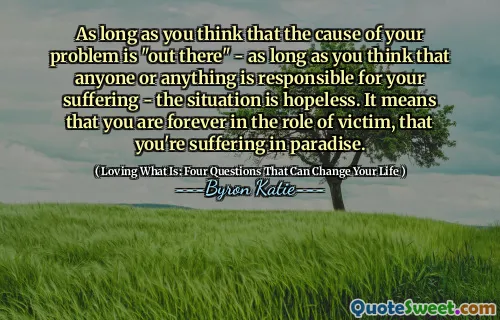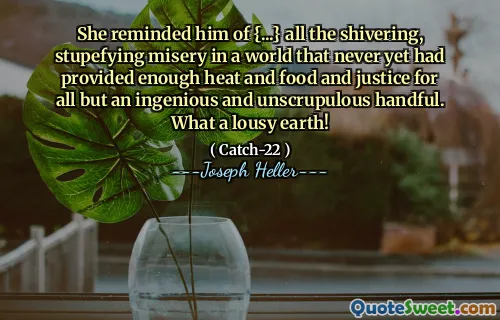
As long as you think that the cause of your problem is "out there" - as long as you think that anyone or anything is responsible for your suffering - the situation is hopeless. It means that you are forever in the role of victim, that you're suffering in paradise.
This quote from Byron Katie profoundly challenges the very foundation of how we often perceive suffering and external circumstances. It suggests that attributing our pain and difficulties to external factors traps us in a victim mindset, a psychological state where we feel powerless and dependent on the actions or existence of others to explain our misery. The metaphor of 'suffering in paradise' starkly conveys the idea that even when conditions are outwardly favorable, our internal state can remain one of profound suffering if we refuse to acknowledge our own role in our experiences.
What resonates most is the call to self-reflection and inner responsibility. We are encouraged to shift from blaming external sources towards understanding how our thoughts and beliefs shape our reality. The implication is not that external events aren't impactful but that our mental interpretations and reactions to these events hold the power to alleviate or exacerbate our distress. This approach aligns with mindfulness and cognitive-behavioral perspectives where changing our internal narrative can transform our experience.
The quote also hints at the liberation that comes from seeing beyond victimhood. Recognizing that pain isn’t solely caused 'out there' but is also connected to our internal responses is the first step toward reclaiming agency. It’s profoundly empowering to realize that while we cannot always control circumstances, we can control our perspective. This awareness opens the door to healing, growth, and ultimately peace.

